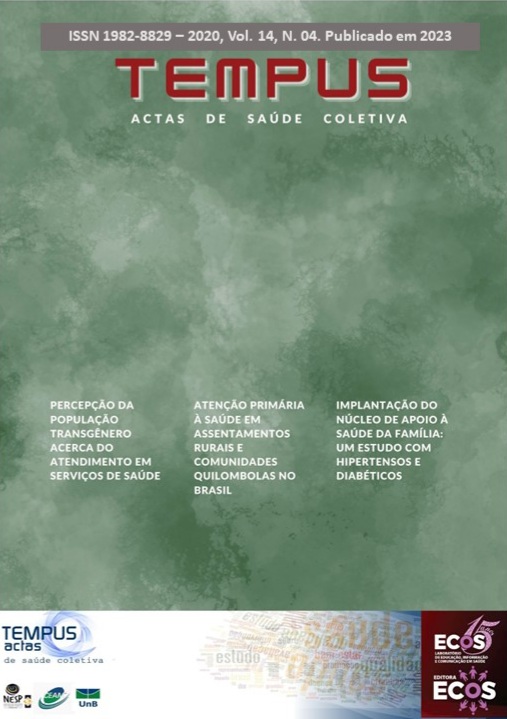Abstract
Introduction: the creation of the Extended Family Health and Primary Care Center (NASF-AB) allowed qualified care for hypertensive and diabetic patients in the Family Health Strategy (ESF) in Brazil, but it still has weaknesses around its implementation. Objective: to evaluate the implementation of the Family Health Support Center (NASF-AB) in relation to its actions of food / nutrition and physical activity / body practices in the care of hypertensive and diabetic patients in the ESF of Petrolina - PE. Methodology: This is an evaluative study of type 1b implementation analysis, which identified the influence of political and structural contextual factors on the NASF-AB Degree of Implementation (GI). Results: The results identified that the IG and its dimensions - structure and process - are partially implemented. The process is favorably influenced by political factors such as knowledge about the NASF-AB, institution of partnerships, expansion of responsibilities and innovation in practices. In turn, the structure is unfavorably influenced by factors such as the physical structure of the health units, team climate, professional ties and investments in the NASF-AB. Conclusion: The partial implantation reveals the need to overcome strong obstacles so that this policy is able to induce effective improvements in the care of hypertensive and diabetic patients in the ESF.
A Tempus garante critérios rigorosos, por meio de avaliação sistemática. Os autores se responsabilizam pela veracidade e ineditismo do trabalho cabendo a eles a cessão de direitos de publicação à revista. A confiabilidade dos conteúdos e a marca própria de apresentação tem como objetivo uma comunicação personalizada, adaptada aos padrões da revista, na medida em que adota critérios de excelência exigidos por seus usuários e especialistas, considerando os rigores da comunicação científica. Os autores devem especificar sua contribuição individual na concepção, delineamento, execução do trabalho, análise ou interpretação dos dados, redação e aprovação final do manuscrito. Incluir Fontes de financiamento e de apoio logístico das pesquisas. Ao final da submissão do artigo, os autores devem enviar uma declaração de cessão de direitos de publicação à Revista TEMPUS , assinada e no formato PDF (Portable Document Format ): Modelo da declaração de cessão de direitos.

